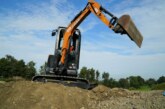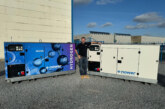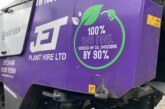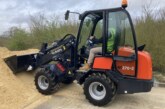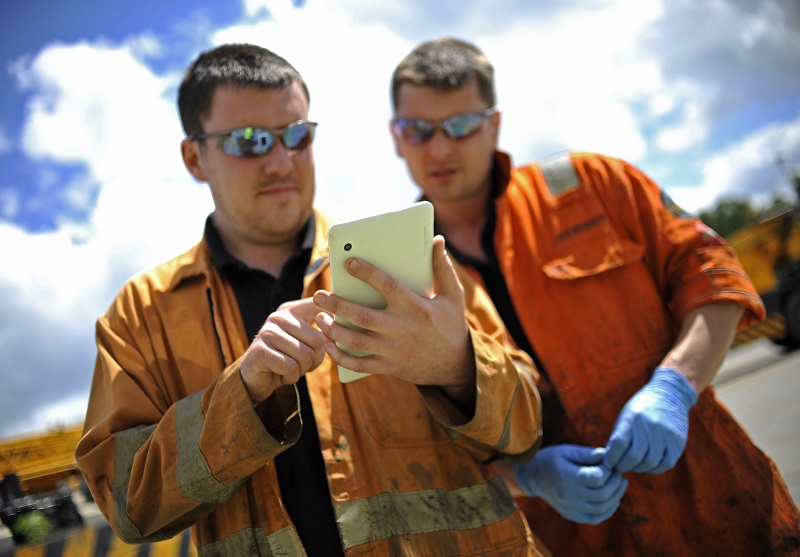
Why should plant and field engineers embrace digital? Colin Yates, chief support officer at WorkMobile, an award-winning mobile data capture service gives his view.
We’re undoubtedly living in a new digital era where innovative technology is constantly changing the way we interact and go about our daily activities.
The devices we carry in our back pockets are becoming increasingly more powerful, and new technology, such as Virtual Reality, is altering how we engage with our surroundings.
Businesses across a whole host of sectors are exploring how this type of technology can revolutionise the way they operate, but the story is surprisingly different within the construction sector.
According to research by ‘Big Five’ accountancy firm KPMG, just 8 per cent of construction firms would class themselves as ‘cutting-edge’ innovators and only a third regularly use mobile technology.
A similar number have no mobile strategies in place at all. This figure is quite unusual given that a large proportion of construction workers usually operate remotely from various plants and sites, and would consequently benefit from mobile processes that would allow them to work and connect with colleagues from any location.
 In spite of these stats, the Government is predicting that the slow uptake will change in the near future and the sector will start reaping the rewards.
In spite of these stats, the Government is predicting that the slow uptake will change in the near future and the sector will start reaping the rewards.
It predicts that by 2025, the adoption of new technology will lead to a 33 per cent reduction in the cost of completing projects and work will be delivered 50 per cent faster. This will help the sector grow by up to 70 per cent by this date.
There are clearly barriers hindering uptake that need to be addressed. Cost is usually cited as one issue, but there are ways to begin implementing business beneficial technology, while still keeping costs down.
There are also various benefits that can be gained from adopting such technology, including reduced operational costs, improved levels of communication and greater efficiency.
Cloud Technology
A major project will often involve people from several disciplines with differing skill-sets – from engineers to admin teams.
Not only this, but workers will usually have to juggle different tasks and move across different locations. So to stay on top of developments at each individual site, everyone involved in the project will need access to a range of information whilst working remotely.
For this reason, data capture and document management plays a huge role in the process to ensure everyone is kept in the loop, and work is carried out in a compliant manner.
The development of cloud technology has allowed everyone to keep precisely to the same agenda. Saving information and work documents remotely to a cloud application gives all parties working on a project instant access to essential materials, such as plans, drawings and work schedules.
These applications can be accessed via mobile devices, like smartphones and tablets, making it much simpler for data to be relayed between those on-site and those based back in the office.
So, for example, engineers who have been tasked with undertaking repair work on a piece of machinery can digitally record updates on where the job is up to, or perhaps take photographs and videos to show if there are any issues.
This data can then be uploaded to a platform hosted on the cloud and instantly accessed by head office; so work can be actioned straight away, and results recorded and signed off quickly.
This is good news given that the construction sector is coming under increasing pressure to work more efficiently and cut costs, whilst still maintaining a high productivity level and operating in a safe and compliant way.
 Reduce operational costs with digital data capture
Reduce operational costs with digital data capture
For engineers working between sites, and without regular access to a desk, juggling mountains of paperwork is far from ideal. Documents can easily be lost, damaged or incorrectly filed.
And when document management is poor, this can mean incomplete audit trails, time wasted on searching for information, and miscommunication. It can also lead to endless compliancy issues that put the business at risk of legal action. This could cause potential penalties or mean they are unable to invoice for completed work.
So, is it possible to completely eliminate the need for physical paperwork and reduce these issues? The simple answer is yes.
There are various cost-effective, digital applications that are now available to simplify the data capture process and allow information to be collected more accurately. With these mobile solutions, everything can be stored remotely in one place and backed up, so documents are safe and secure and can be managed more efficiently.
An example of one effective data capture solution is WorkMobile for Construction. An application that can be accessed via a laptop, smartphone or tablet, this solution enables information to be captured in real-time by workers both on or off site.
It can also reduce data entry costs, saving significant amounts of time previously spent on manual process, such as time keeping or filing documents.
Data capture services, such as this, help to reduce user errors, prevent damage and loss, and can save businesses money – on average over £2,000 per employee per year. As a result, this helps to increase productivity, improve operational return on investment and streamline workflows.
By replacing traditional paper forms, field workers can easily collect, monitor and share data via their mobile device, such as maintenance report forms, timesheets, locations, photos and signatures.
Some data capture apps can also give organisations live updates of when the status of a job changes – such as whether a specific task has been completed. This can help digitally record the exact progress of a project, making it easier to report back to clients or project managers.
Adopting readily available forms of technology, such as cloud computing, smartphone devices and data capture services, can greatly benefit the engineering sector and help bring it up-to-date.
With the spotlight now on the industry to become more tech-savvy, there is no greater time for contractors and plant engineers to get on board.
Embracing this cost-effective technology will not only help firms to remain competitive and agile, but will also lead to greater compliancy and more efficient ways of doing business.
For more information on WorkMobile click here.

